“You never change things by fighting the existing reality.
To change something, build a new model that makes the existing model obsolete.”
― Richard Buckminster Fuller
The following models define the framework of research used in GaudiLabs to make change.
Open Innovation
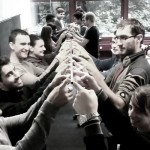 Innovation results from an open and trustfull exchange. Thoughts are free and of their recombination occurs creative and new. Shared knowledge empowers people and allows everyone to deploy his full potential and implement aspirations into reality. Socially accepted ideas are good ideas.
Innovation results from an open and trustfull exchange. Thoughts are free and of their recombination occurs creative and new. Shared knowledge empowers people and allows everyone to deploy his full potential and implement aspirations into reality. Socially accepted ideas are good ideas.
– The projects documented on this site are creations of open innovation.
– GaudiLabs is a place to meet, share ideas openly and work on innovation.
– Lecture on Open Innovation at Lucerne University
– Interdisciplinary work in colaboration with institutions and companies
Democratization of science and industry
 Basic democratic systems are open, sustainable and on the long run efficient. A cognitive-bringing science is based on open source basic research. Even corporate structures are viable only thanks to the development of democratic structures. The broad-based understanding and participation makes technologies and enterprise socially acceptable.
Basic democratic systems are open, sustainable and on the long run efficient. A cognitive-bringing science is based on open source basic research. Even corporate structures are viable only thanks to the development of democratic structures. The broad-based understanding and participation makes technologies and enterprise socially acceptable.
– Open scientific research on technology and culture
– Democratisation of knowlede in biology and life science thorugh the network of Hackteria.org
– Residencies and coaching in enterprise
– Developpement of open source generic lab equipement
Value networks with small batch production
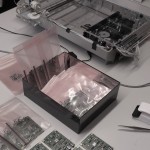 The strength of the distributed prevails. A large number of small producers guarantees a stable, socially acceptable and meaningful supply of all goods.The diversity and creativity of goods and services is high. The cooperation and exchange in the network allows for a high level of complexity. Best use of resource.
The strength of the distributed prevails. A large number of small producers guarantees a stable, socially acceptable and meaningful supply of all goods.The diversity and creativity of goods and services is high. The cooperation and exchange in the network allows for a high level of complexity. Best use of resource.
– Small batch production of open source hardware products
– Research and developpment of knowledge and equipement for distributed production
– Coaching in open culture and open technology
Merger of virtual and physical world
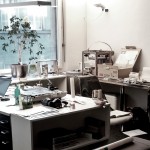 Computer technology has revolutionized the creation and communication of cultural good. Sophisticated algorithms, new process and information structures changed the world. With new digital manufacturing technology, ubiquitous computing and internet of things the virtual and the physical world merge. The personal computer area is over, pixels on computer screens disappeared and bits reappear in the physical world.
Computer technology has revolutionized the creation and communication of cultural good. Sophisticated algorithms, new process and information structures changed the world. With new digital manufacturing technology, ubiquitous computing and internet of things the virtual and the physical world merge. The personal computer area is over, pixels on computer screens disappeared and bits reappear in the physical world.
– 3D printing and laser cutting and digital knitting of creative objects
– Collaboration in the global FabLab and hacker space network
– Hand’s On Workshops combining digital and physical skills
From reductionistic to holistic to unified
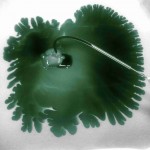 To be able to work with open, non-linear and complex systems like societies or biology in general a holistic approach that takes into account self-organization, self similarity, dynamic equilibrium and spontaneously evolving structures is chosen over a primarily reductionistic view.
To be able to work with open, non-linear and complex systems like societies or biology in general a holistic approach that takes into account self-organization, self similarity, dynamic equilibrium and spontaneously evolving structures is chosen over a primarily reductionistic view.
– Fractals and chaotic dynamics
– Dissipative structures
– Homeostasis
Publications and presentations
Peer reviewed:
Wolf, Patricia, Maximilian Joseph Bernhart, Conceptualizing open distributed innovation: A framework for
the collaboration of private companies with grassroots-driven
open communities
Book chapter / Commentary on the law / Lexicon articles:
Gaudenz, Urs & Wolf, Patricia (2015). Lesen verboten. In Zukunftslabor CreaLab (Hrsg.), Zukunftsgeschichten (S. 15-20). Norderstedt: Books on Demand.
Working Papers:
Gaudenz, Urs; Kummler, Barbara & Ossevoort, Stijn (2017). OPEN FACTORY – Agil entlang der Wertschöpfungskette: PRAKTIKEN UND ERFOLGSFAKTOREN BEI DER INTEGRATION VON KREATIV- UND PRODUKTIONSPROZESSEN (Bericht). Kompetenzzentrum Aerospace Biomedical Science and Technology (CC ABST),
Academic Presentations:
Projects
IS Open Knowledge Sharing in FabLab
Mitbestimmung von Mitarbeitenden aus DIY-Communities
IS COST Dynamics of Virtual Work
IS Eine Toolbox für das Management transdisziplinärer (anwendungsorientierter) Projekte
Art and Science Collaborations
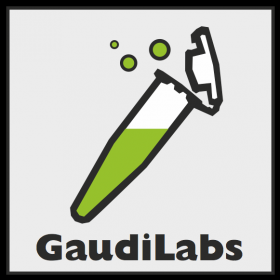
niiiiice